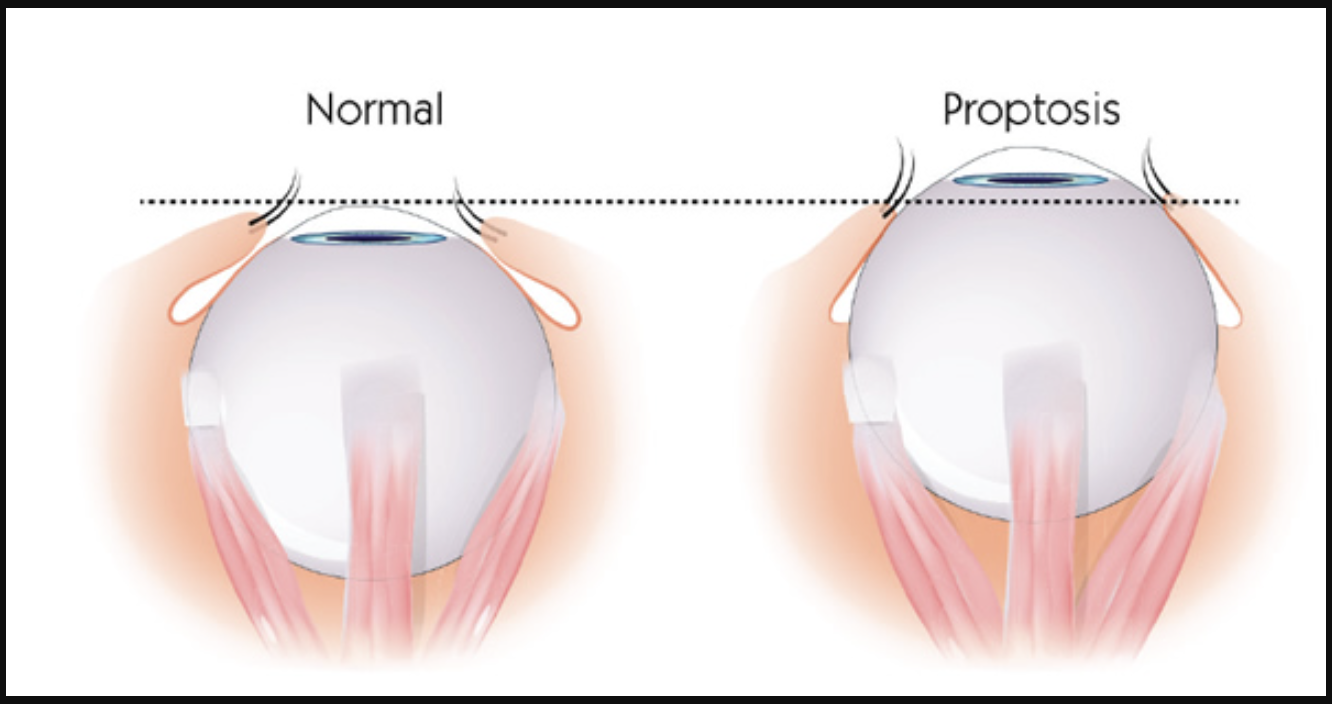Thyroid Eye Disease: Thyroid eye disease (TED for short) is an autoimmune disease that affects some people with autoimmune thyroid disease. TED most often occurs in people with hyperthyroidism due to a serious medical condition and is rare in patients with normal or low thyroid levels.
- About one in three people experience serious symptoms of eye disease.
- Although ocular symptoms can occur at any time, they usually appear within the first year of diagnosis of severe disease.
- Ted is usually mellow and gets better with time.
- Some cases can be very serious and require treatment or intervention.
Symptoms of thyroid eye disease include:
- Feeling of sand in the eyes (like “sand in the eyes”) and sensitivity to light
- Pain behind the eyes or when the eyes move
- Red eyes caused by swelling/irritation of the thin layer (conjunctiva) covering the white part of the eyes.
- Dry eyes
- Except for the tears in eyes
- Swollen or red eyelids
- Suggest eye swelling (proptosis)
- Double vision
If you notice any of these signs of a more serious eye condition, contact your doctor immediately.
- If the eyelids cannot close completely because of TED, the outer surface of the eye is damaged.
- change in the way you perceive colors
- If parts of your field of vision are lost (which can happen if the optic nerve is compressed.
What is Thyroid Gland?
The thyroid is a butterfly gland located at the front of the lower neck. The role of the thyroid gland is to produce thyroid hormone. Thyroid hormones are released into the bloodstream and carried to every tissue in the body. Thyroid hormones help the body use energy, keep warm, and keep the brain, heart, muscles, and other organs functioning properly.
How It Can be Diagnosed?
Thyroid disease (TED) can be diagnosed by your primary care physician, thyroid doctor/endocrinologist, or ophthalmologist. This usually happens when you tell them about your symptoms and they examine your eyes. You may also need additional tests, e.g
- Measuring the size of the eye bulge
- Tests to check visual field and color vision
- Computed tomography (CT) or magnetic resonance imaging (MRI) scan of the eye sockets and muscles.
This is How TED can Prevented
More research on TED is needed to better understand why some people get it and others don’t. However, research has identified several factors that may increase the likelihood of TED developing or worsening.
-Exposure to cigarette smoke, even secondhand smoke
-If you smoke, you should try to quit.
-You should avoid all cigarette smoke, including secondhand smoke
-Abnormal thyroid hormone levels (high or low) can worsen eye disease. You can work with your doctor to keep your thyroid hormone levels within the normal range.
-Treatment of hyperthyroidism with radioactive iodine (RAI), especially in smokers and/or people who have already had TED.
-Your doctor will usually advise you to avoid RAI treatment if you have moderate or severe eye symptoms.
-However, if RAI is the best treatment option for you, your doctor may discuss taking steroid medications while undergoing RAI treatment. This may prevent eye disease from getting worse.
